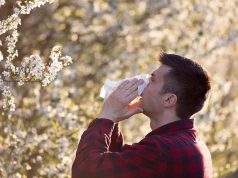Findings seen for assisted ventilation, multiple clinical interventions, and systemic antibiotics
By Lori Solomon HealthDay Reporter
TUESDAY, Feb. 6, 2024 (HealthDay News) — Prenatal exposures to fine particulate matter (PM2.5) increase the risk for severe respiratory distress among term newborns, according to a study published online Jan. 25 in Environmental Health Perspectives.
Markey Johnson, Ph.D., from Health Canada in Ottawa, and colleagues examined associations between prenatal exposures to PM2.5 and nitrogen dioxide with respiratory distress and related neonatal outcomes. The analysis included data from 2,001 participants in a prospective pregnancy cohort recruited in the first trimester from 10 Canadian cities.
The researchers found that 7 percent of newborns experienced respiratory distress, including 4 percent who were admitted to the neonatal intensive care unit (NICU). There were no associations observed between prenatal exposures to air pollution and physician-diagnosed respiratory distress, oxygen therapy, or NICU admissions. However, there was a strong association seen between PM2.5 exposures and assisted ventilation (odds ratio [OR], 1.17 per 1-μg/m3 increase in PM2.5), multiple clinical interventions (OR, 1.16 per 1-μg/m3 increase in PM2.5), and systemic antibiotics (OR, 1.12 per 1-μg/m3 increase in PM2.5). Across exposure periods (prepregnancy, individual trimesters, and total pregnancy), the associations were consistent and robust to model specification.
“These findings support the development and prioritization of public health and prenatal care strategies to increase awareness and minimize prenatal exposures to air pollution,” the authors write.
Copyright © 2024 HealthDay. All rights reserved.








